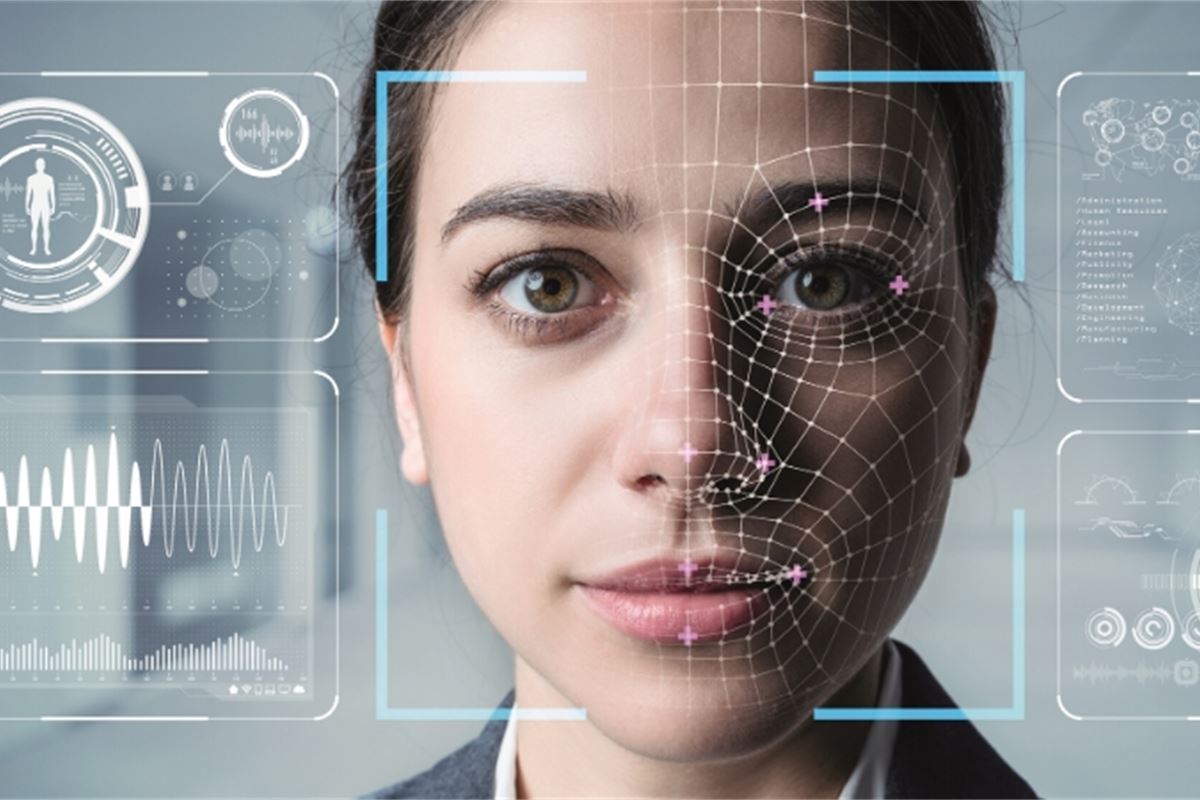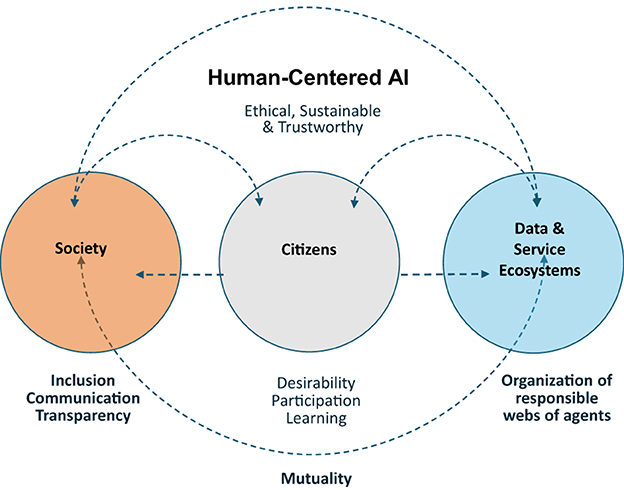Towards a Human-Centered AI Transformation: Redefining the Connection Between Human Beings and Intelligent Machines
In this paper, titled "In the direction of a Human-Centered AI Change: Redefining the Partnership In Between Humans and Smart Makers," we dig into the current landscape of AI, discovering the moral considerations in its development. By empowering human-AI cooperation and redefining the function of AI in culture, we intend to lay out a course in the direction of an extra harmonious and beneficial coexistence in between humans and intelligent equipments.
Recognizing the Current Landscape
The existing landscape of human interaction with smart devices can be best recognized with a comprehensive evaluation of existing AI applications and their influence on numerous sectors. Fabricated Knowledge (AI) has swiftly became a transformative pressure throughout multiple industries, reinventing the way we live and work. From health care and money to transport and production, AI applications have actually permeated almost every aspect of our culture.
In medical care, AI-powered formulas are being made use of to diagnose diseases, predict client results, and also aid in surgeries. These innovations have the prospective to substantially boost client care, reduce clinical mistakes, and enhance overall performance in health care distribution.
In financing, AI is transforming the means we make financial investment choices, automate trading, and find illegal tasks. Artificial intelligence formulas can analyze huge amounts of monetary data in real-time, permitting for even more exact predictions and better danger management.
Transport is one more location where AI is making significant strides - human centric ai. Self-driving autos are ending up being a reality, with business like Tesla and Waymo blazing a trail. AI-powered systems are allowing more secure and much more reliable transport, decreasing accidents and traffic jam
In manufacturing, AI is revolutionizing manufacturing procedures through the use of robotics and automation. Smart machines can carry out intricate jobs with accuracy and rate, resulting in raised efficiency and cost savings.
These examples highlight the diverse variety of AI applications and their effect on different sectors. Recognizing the current landscape is important for people, organizations, and policymakers to harness the complete potential of AI while addressing its ethical, legal, and societal effects.
Moral Factors To Consider in AI Advancement

Another moral problem is the fairness and openness of AI formulas. AI systems typically rely upon large amounts of information to choose, and if this information is prejudiced or insufficient, it can cause inequitable end results. Programmers have to make certain that their algorithms are honest and fair, which they do not perpetuate existing prejudices in society.

Privacy is also a substantial honest consideration in AI growth. AI systems typically call for access to personal data to operate efficiently, yet this raises problems about data privacy and security. Developers require to implement robust privacy actions and ensure that individual information is shielded and utilized properly.
Finally, there is an ethical duty to make certain that AI systems are not utilized for destructive purposes. AI innovations have the prospective to be utilized for monitoring, cyberattacks, and other dangerous tasks. It is vital for programmers to focus on the development of AI systems that are resistant and protected to abuse.
Humanizing AI: Compassion and Emotional Knowledge
To efficiently humanize AI, developers must purposely grow empathy and emotional knowledge in their intelligent equipments. Compassion describes the capability to understand and share the feelings of others, while psychological intelligence encompasses the ability to recognize, comprehend, and manage feelings, both in oneself and in others. Integrating these traits right into AI systems can considerably enhance their capability to communicate with people in a more purposeful and natural way.
By instilling compassion in AI, developers can produce equipments that are capable of reacting and recognizing to human emotions. This can be accomplished with the usage of natural language handling and sentiment evaluation strategies, allowing AI systems to understand the emotional subtleties in human communication. By accurately interpreting emotions, intelligent makers can better customize their responses, providing empathy and support when needed.
Moreover, psychological knowledge in AI can make it possible for devices to adapt their actions based on the mood of the customer. An AI aide could acknowledge indicators of stress or unhappiness in a customer's voice and respond with perseverance and compassion, offering useful suggestions or words of encouragement.
Developers can grow empathy and psychological knowledge in AI systems via making use of equipment understanding algorithms. By educating AI models on datasets that here are the findings include psychological signs and responses, machines can discover to recognize and properly reply to human emotions. In addition, continuous research in affective computer and affective neuroscience can provide useful understandings into the growth of compassionate and psychologically smart AI.
Empowering Human-AI Partnership
Humans bring creative thinking, intuition, and contextual understanding, while AI brings computational power, information evaluation abilities, and speed. By incorporating these staminas, we can create a cooperative connection where humans and AI job together to solve complicated problems, make educated choices, and drive technology.
To encourage human-AI collaboration, it is essential to make AI systems that are user-friendly, transparent, and explainable. This indicates establishing instinctive interfaces that promote seamless communication in between people and AI formulas (human centric ai). Additionally, AI versions should be clear, providing individuals with insights right into exactly how decisions are made and allowing them to trust fund and verify the outcomes
Additionally, encouraging human-AI collaboration needs continuous training and upskilling of human workers. This requires providing education and learning and sources that allow people to recognize and effectively use AI systems. By empowering humans with the knowledge and abilities to utilize AI's capacities, we can make sure an unified partnership that takes full advantage of the capacity of both parties.
Redefining the Function of AI in Society
The redefinition of the duty of AI in society requires a thorough and thoughtful assessment of its impact and potential. As AI innovations proceed to advancement and come to be a lot more incorporated right into numerous aspects of our lives, it is crucial to consider exactly how they can best offer culture and deal with the obstacles we encounter. AI has the prospective to revolutionize sectors, enhance performance, and enhance decision-making procedures. It additionally raises problems about task displacement, privacy, and honest effects.
One aspect of redefining the function of AI in society includes making sure that it is used as a device to augment human capabilities instead of change them. Collective methods, where humans and AI collaborate, can result in ingenious solutions and much better end results. This needs a shift in way of thinking from watching AI as a hazard to accepting it as an important source that can sustain human ventures.
One more important factor to consider is the ethical use AI. As AI systems become a lot more capable and independent of making independent decisions, inquiries arise pertaining to transparency, accountability, and fairness. It is vital to develop ethical guidelines and governing structures to avoid the misuse of AI and make sure that it straightens with societal worths.
Additionally, the function of AI in resolving social obstacles such as health care, environment modification, and destitution browse around this site should be discovered. AI has the possible to add substantially to these locations by allowing better information evaluation, forecast designs, and targeted interventions.
Conclusion
In final thought, the partnership in between humans and intelligent makers is evolving towards a much more human-centered AI change. Inevitably, redefining the function of AI in culture can add to a future where people and smart equipments work together for the betterment of society.
In this paper, titled "Towards a Human-Centered AI Transformation: Redefining the Connection Between Humans and Smart Equipments," we dive into the current landscape of AI, exploring the ethical considerations in its growth. By empowering human-AI cooperation and redefining the function of AI in culture, we aim to detail a path towards a more unified and valuable conjunction between humans and smart makers.
